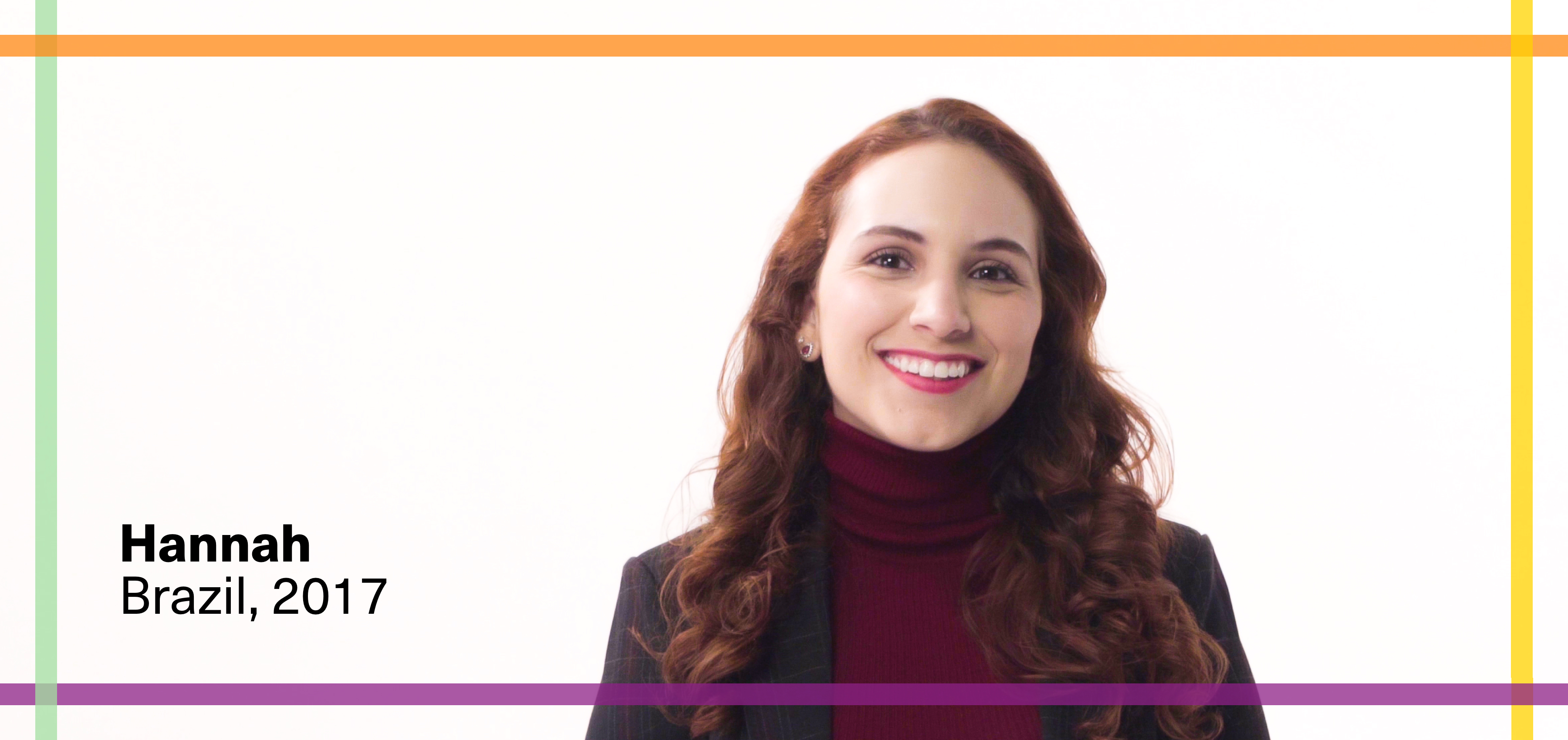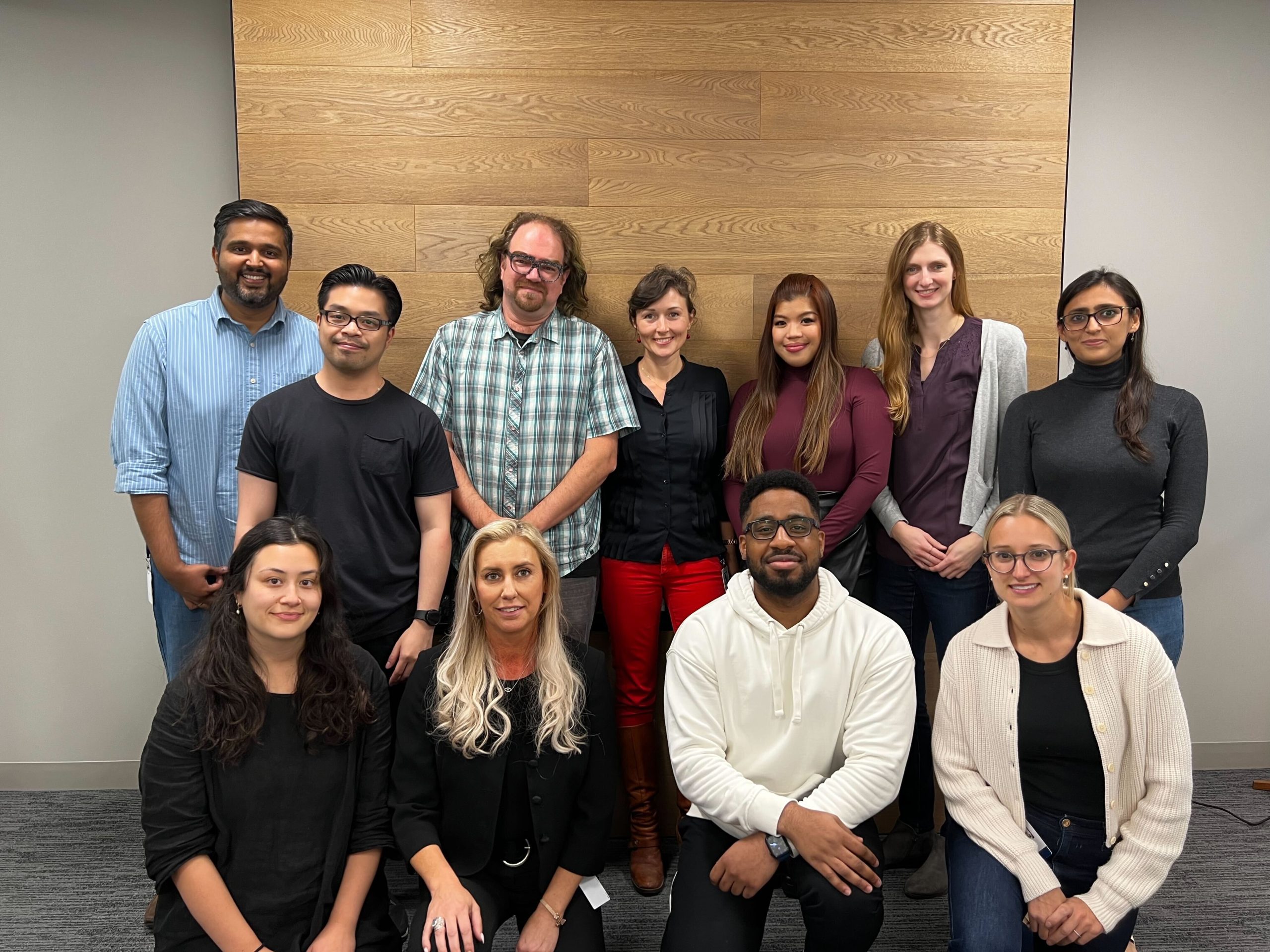From an interview with Hannah Mendonça, administrative assistant
Hannah Mendonça was a lawyer in Aracaju, Brazil. She left her successful career behind with her family and set out with her husband to start from scratch in Canada. She faced obstacles in her field, so she pivoted, and is now working full time – and working toward her goal of building a life and family in Canada. This is Hannah’s story.
My first interview was a disaster. It lasted only ten minutes, but it felt like an hour. I had to get a job.
At first, I tried for a role as a legal assistant, administrative assistant, or something like that, but people looked at my resume, and said, “you don’t have any Canadian experience” or “you are overqualified because you are a lawyer.”
I remember I had two interviews at a law office: In the first one, the lawyers asked me, “Why are you coming to work here?” And I told them, “It’s not that I’m a lawyer and I think I’m the best. As you can see, I’ve been working in retail. I don’t mind. I want to live in Canada. I want to change my life.” And they accepted. I passed to the next interview, but the second guy, who was also a lawyer, felt that I was overqualified.
Practicing English in the high-pressure world of fast fashion
My lack of English made me nervous in interviews. Even answering the phone made me anxious. I was always a good listener, but my speaking was horrible. When I came here, I could understand people, but I couldn’t speak fluently because I was always translating in my mind. I knew the structure, I knew the words, but they wouldn’t come out. I didn’t have confidence. I was always thinking, “Oh, how could I say that?” When you are working at a retail store, for example, you don’t have time. People are just pushing you, and you have to do your best. And so, the best way that I could improve my English was by working.
At the time, my husband was at school, and I landed a job as a salesperson at a large fashion retailer in the busiest shopping centre in Canada. We didn’t have time to be together because I was working during weekends, and he was studying during weekdays. It was a difficult time. My schedule was from 1 pm to 10 pm, or from 10 am to 7 pm. It wasn’t great. And, the store I worked for had aggressive daily sales goals—for example, $3,000 during an eight-hour shift. Each and every hour, the managers said, “It doesn’t matter if you sell a $200 dress. You should add a shirt and a skirt!”
It was hard work. I couldn’t even rest. When I went home to try to sleep, my head was filled with the loud music from the store. It was too much pressure. It was intense – but when I left that job, I was their top salesperson.
Change your approach. Change your resume. Change the result.
I changed the way I approached the resume, interview and job search process. Instead of presenting myself as a lawyer, and focusing on law, I was less specific, talking about university but not law school, like mentioning a degree from this university, but not specifying it. On my resume, I essentially deleted my post-graduate work. It was very, very basic, but I began to get more interviews at law offices.
Moving on from my first interviews (where I was so nervous because I didn’t know what to say), I kept going to more and more interviews, never giving up, and always learning. It really helped me.
My husband would say, “You weren’t afraid to go in front of a judge and make speeches in court. You were never afraid of that.” But I told him that it was in my mother tongue. I was much more comfortable, and I knew the situation. I studied so many years to do that, so I was prepared, but when I came here, I wasn’t.
As a lawyer, I was always methodical about my cases, but not about me. Not about my past or what I was good at. It was all about another person and their case, their story, not mine. Now, after so many interviews, I am better at selling myself. You have to pick your strengths and skills – things that you’re good at and practice what to say about them.
I’m super-organized, I’m very good at multitasking, and I’m easy going – I don’t have issues with my coworkers. As far as I can remember, this is what I said at my last interview – for the job I have now. I remember that the interview was really fun. I liked them, I liked the place, and we connected – which is important. I am happy at work.
For now, my biggest goal is to be a permanent resident in Canada.
The job I have is a good one, and it will help me with my Canadian experience because it’s enough of a job. I didn’t have to be super qualified for it, but I do have a lot of responsibilities: I have to coordinate what the clients want as well as help with accountability. It’s a role that will count towards the Express Entry program. When I complete one year with this company, I will receive additional points that will help my Permanent Resident status.
If we are approved for our permanent residency, we won’t have to re-apply again and again (a process filled with uncertainty and anxiety). And if we stay here for more than three years as permanent residents, my husband and I can apply to become Canadian citizens.
Read more about how to immigrate to Canada.
Know your goal: You have to know what you want before you can find it
Come to Canada with your goals in your mind and be prepared to change your strategy. Here, we have more opportunities for a better life. If you come with an open mind you’re going to succeed. You have to believe in yourself because if you have a goal, if you can imagine something, you have to pursue it, right?
It was very frustrating. There were so many days I went home and cried. I was overwhelmed. Like, “I can’t do this anymore” – but it’s life. We have to rest and remember, tomorrow is another day. Next time will be better, next time will be fine. Always try to push yourself, even a bad situation can push you. My goal is to have a family in Canada – and if I want to do something, I will do it.





